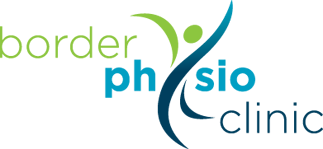Read more about the range of treatments we have on offer at Border Physio Clinic.
Orthopaedic Consultations
Orthopaedics is the branch of medicine concerned with the musculoskeletal system. Our orthopaedic consultant runs a monthly clinic assessing a range of conditions from sports and trauma to degenerative conditions. If initial consultation indicates further investigations or surgery, this can be organised. Joint injections of either steroid or a viscosupplementation product are also carried out.
TCM Acupuncture and Qi gong Tui na Massage
TCM Acupuncture
Acupuncture is one of the branches of Traditional Chinese Medicine which has been developed and practised for over 2000 years. It follows the principle that the smooth flow of qi (energy) throughout the body is essential for good health. If this flow is disrupted in any way, pain or illness may occur. Acupuncture works by accessing points along the pathways (meridians) of qi to correct the flow. Fine needles (sterile, single use) are inserted into the body at these points. Levels of sensation vary from person to person and also upon the location of the point on the body. The feeling of the needles is often likened to a mild tingling or a dull ache. Acupuncture is holistic and aims to treat the root of health problems by seeing the whole person. This means it can be effective for a wide range of conditions, from a specific osteoarthritis of the knee to a general feeling of poor health with no obvious diagnosis.
Qi Gong Tui Na Massage
Tui na follows the same principles as acupuncture and uses massage techniques, instead of needles, to correct the flow of qi in the body. It is ideal for anyone who would like acupuncture but is not keen on needles as it can be used to treat the same conditions as acupuncture would. This particular style of tui na (qi gong tui na) is quite gentle, focusing on a quieter approach to body work but with deep, long lasting effects. The massage concentrates on the effected area but will generally involve the whole body, working along the meridians. It is normally carried out over clothing and it is important to wear something that is lightweight, loose and comfortable. Treatments are very relaxing and it can be especially useful in helping to relieve stress and anxiety.
Pilates
Is a body conditioning routine developed in the early 20th century by Joseph Pilates. It is a routine which helps to build flexibility, muscle strength, and endurance in the whole body. It puts emphasis on spinal and pelvic alignment, breathing and developing a strong core centre. It also improves muscle tone, balances musculature, supports correct posture and teaches how to move with ease. It is useful for improving balance, lumbar stabilization and flexibility, lower back pain, and pelvic floor dysfunction.
Event Support
Please contact the clinic for details. We may be able to provide sport massage and/or physiotherpay input as your event requires.




